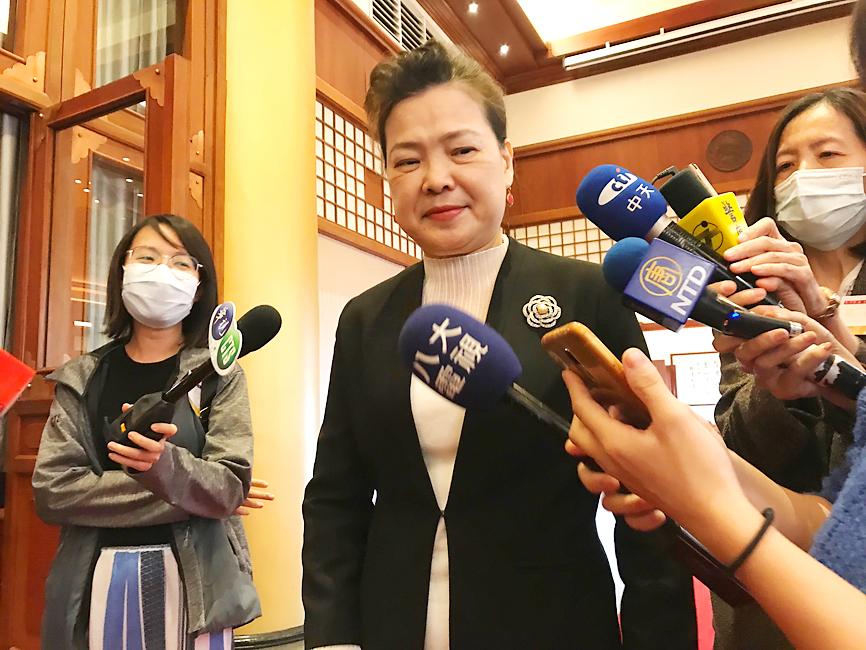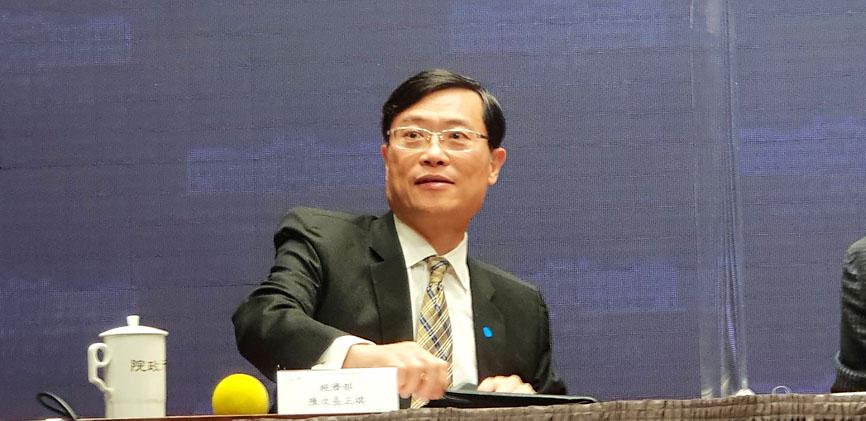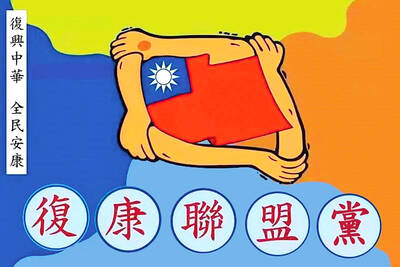Taiwan and the US are to hold talks on “strategic economic cooperation” in Washington on Friday next week, the Ministry of Economic Affairs (MOEA) and the Ministry of Foreign Affairs announced in separate statements yesterday.
US Assistant Secretary of State for East Asian and Pacific Affairs David Stilwell on Aug. 31 announced the establishment of the Taiwan-US Economic and Commercial Dialogue — which has since been renamed the Taiwan-US Economic Prosperity Partnership Dialogue — after President Tsai Ing-wen (蔡英文) on Aug. 28 promised to ease restrictions on imports of US cattle more than 30 months old and US pork containing ractopamine.
US Secretary of State Mike Pompeo announced the date of the talks at a news briefing in Washington on Tuesday, saying: “The dialogue signifies that our economic relationship with Taiwan, a vibrant democracy and reliable partner, is strong and growing.”

Photo: Lee Ya-wen, Taipei Times
The first dialogue would be “online/offline,” with Deputy Minister of Economic Affairs Chen Chern-chyi (陳正祺) leading a small delegation to the US, while Minister of Economic Affairs Wang Mei-hua (王美花), Minister without Portfolio John Deng (鄧振中) and Minister of Science and Technology Wu Tsung-tsong (吳政忠) would join the talks from Taipei via video conference.
The US delegation would be headed by US Under Secretary of State for Economic Growth, Energy and the Environment Keith Krach, who visited Taipei in September.
US-Taiwan relations are “going in a very good direction” and the MOEA is working to “expedite progress,” Wang said.

Photo: Lee Hsin-fang, Taipei Times
“We will be talking about economic cooperation in the fields of medicine, technology, supply chains and energy,” she said.
“We can see by the breadth of the topics that just like US Secretary of State Mike Pompeo said, the Taiwan-US relationship is strong and growing,” Wang said. “We are happy to be able to seize the moment and push ahead with talks.”
As the talks would be held within the purview of the US Department of State, specific trade issues, such as a bilateral trade agreement, would not be addressed, she said.
Asked by reporters whether the issue of US pork imports would be revisited, Wang said that it was important to “follow through on President Tsai Ing-wen’s commitment to lift the ban.”
“The ban on pork containing ractopamine was a long-term problem we finally addressed. Now that the president made a promise [to ease the ban], we must carry it through,” Wang said.
During a meeting with industrial representatives in Taipei yesterday, Tsai said that the dialogue demonstrates the progress in Taiwan-US relations and heralds an opportunity for local industries.
With closer partnerships, Taiwanese companies would surely become more competitive on the global stage, she said.
American Institute in Taiwan (AIT) Director Brent Christensen would also join the dialogue from Taipei via video conference, the AIT said in a news release, adding that Chen would be joined in Washington by Representative to the US Hsiao Bi-khim (蕭美琴).
Cooperation related to 5G security, semiconductors, infrastructure development, investment project reviews and women’s economic empowerment, as well as scientific and technological projects would be discussed, the statement said.
In other developments, Wang told reporters that “economic bubbles” for business travelers to Taiwan are “necessary for the Taiwanese economy.”
“Face-to-face communication is still irreplaceable for serious investments and purchasing decisions,” Wang said. “We are pleased the first case went through — there are more in the pipeline.”
The MOEA on Tuesday announced that the Central Epidemic Command Center had approved a request for several representatives of a US electronics company to visit Taiwan for three days under economic bubble rules that exempt them from quarantine procedures.

AIR DEFENSE: The Norwegian missile system has proved highly effective in Ukraine in its war against Russia, and the US has recommended it for Taiwan, an expert said The Norwegian Advanced Surface-to-Air Missile Systems (NASAMS) Taiwan ordered from the US would be installed in strategically important positions in Taipei and New Taipei City to guard the region, the Ministry of National Defense said in statement yesterday. The air defense system would be deployed in Taipei’s Songshan District (松山) and New Taipei City’s Tamsui District (淡水), the ministry said, adding that the systems could be delivered as soon as the end of this year. The US Defense Security Cooperation Agency has previously said that three NASAMS would be sold to Taiwan. The weapons are part of the 17th US arms sale to

SERIOUS ALLEGATIONS: The suspects formed spy networks and paramilitary groups to kill government officials during a possible Chinese invasion, prosecutors said Prosecutors have indicted seven retired military officers, members of the Rehabilitation Alliance Party, for allegedly obtaining funds from China, and forming paramilitary groups and assassination squads in Taiwan to collaborate with Chinese troops in a possible war. The suspects contravened the National Security Act (國家安全法) by taking photos and drawing maps of key radar stations, missile installations and the American Institute in Taiwan’s headquarters in Taipei, prosecutors said. They allegedly prepared to collaborate with China during a possible invasion of Taiwan, prosecutors said. Retired military officer Chu Hung-i (屈宏義), 62, a Republic of China Army Academy graduate, went to China

INSURRECTION: The NSB said it found evidence the CCP was seeking snipers in Taiwan to target members of the military and foreign organizations in the event of an invasion The number of Chinese spies prosecuted in Taiwan has grown threefold over a four-year period, the National Security Bureau (NSB) said in a report released yesterday. In 2021 and 2022, 16 and 10 spies were prosecuted respectively, but that number grew to 64 last year, it said, adding that the Chinese Communist Party (CCP) was working with gangs in Taiwan to develop a network of armed spies. Spies in Taiwan have on behalf of the CCP used a variety of channels and methods to infiltrate all sectors of the country, and recruited Taiwanese to cooperate in developing organizations and obtaining sensitive information

BREAKTHROUGH: The US is making chips on par in yield and quality with Taiwan, despite people saying that it could not happen, the official said Taiwan Semiconductor Manufacturing Co (TSMC, 台積電) has begun producing advanced 4-nanometer (nm) chips for US customers in Arizona, US Secretary of Commerce Gina Raimondo said, a milestone in the semiconductor efforts of the administration of US President Joe Biden. In November last year, the commerce department finalized a US$6.6 billion grant to TSMC’s US unit for semiconductor production in Phoenix, Arizona. “For the first time ever in our country’s history, we are making leading edge 4-nanometer chips on American soil, American workers — on par in yield and quality with Taiwan,” Raimondo said, adding that production had begun in recent